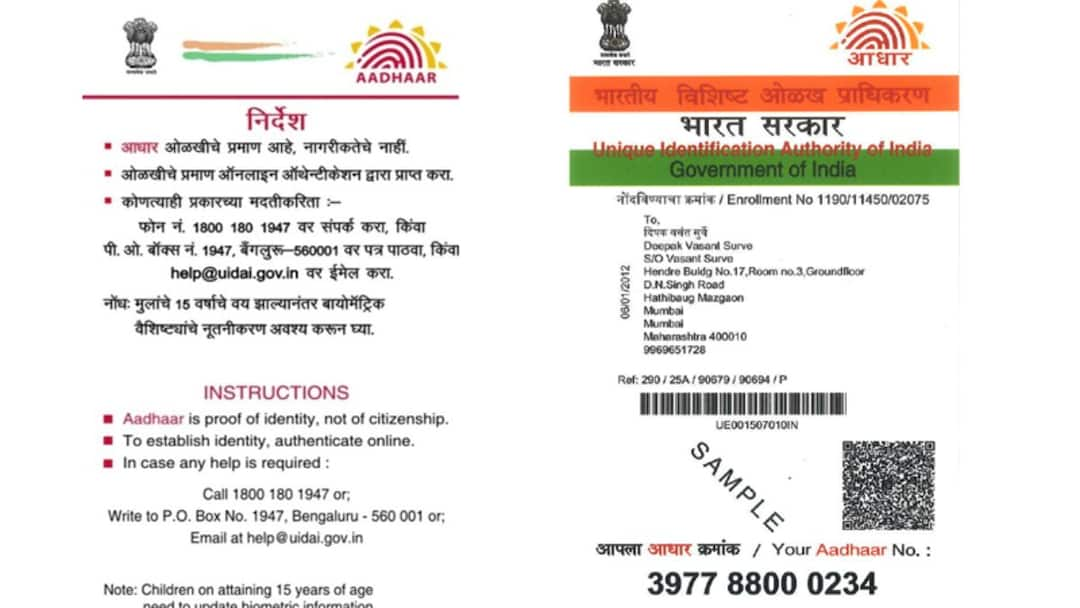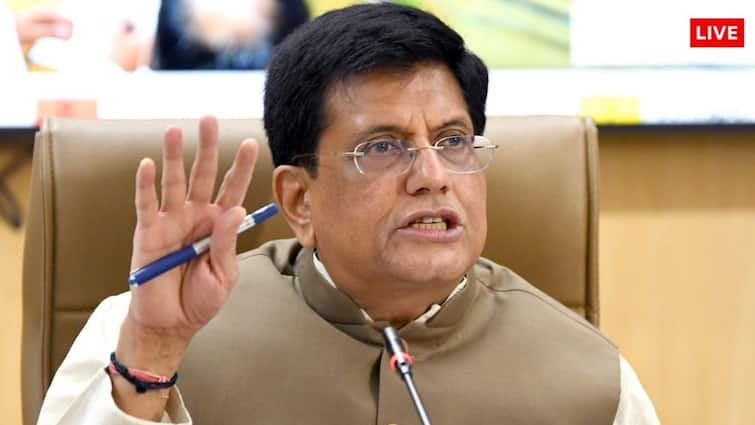Two major states, Uttar Pradesh and Maharashtra, have moved to formally clarify that Aadhaar can no longer be used as proof of birth for issuing birth certificates.
The decision marks a significant procedural shift for citizens who have so far relied on Aadhaar as a multipurpose document for a range of government services.
Both states issued fresh orders on Friday, noting that Aadhaar may still be used to verify identity but cannot be treated as a substitute for an official birth certificate. The directives come amid heightened scrutiny of documentation processes and concerns around the misuse of certificates, reported The Financial Express.
What Uttar Pradesh’s Order Says
The Uttar Pradesh Planning Department stated unequivocally that the Aadhaar card is not and has never been a birth certificate. Officials emphasised the need to avoid confusion between an identity number and a document that legally confirms the fact and date of birth.
In Uttar Pradesh, Aadhaar cards will no longer be accepted as a birth certificate or proof of date of birth. The Planning Department has issued instructions to all departments. No birth certificate is attached to the Aadhaar card; therefore, it cannot be considered a birth… pic.twitter.com/uzinTdj8Yc
— ANI (@ANI) November 28, 2025
Special Secretary Amit Singh Bansal noted in his circular to all departments, “No birth certificate is attached to the Aadhaar card; therefore, it cannot be considered a birth certificate.”
The directive is expected to streamline verification protocols across government offices, ensuring departments rely on recognised civil registration documents instead of Aadhaar for crucial birth‑related records.
Maharashtra Tightens Rules Further
Maharashtra has taken an even firmer stance. The State Revenue Department announced that any birth certificate issued solely on the basis of Aadhaar after the August 2023 amendment will be cancelled.
Maharashtra | Aadhaar card will not be considered as a document for making a delayed birth certificate in the state and all birth certificates made only through the Aadhaar card after August 2023 amendment in Act will be cancelled. The government has taken this decision to stop… pic.twitter.com/Pogz4sAD6Y
— ANI (@ANI) November 28, 2025
The order states that Aadhaar will not be accepted for issuing delayed birth certificates either. The government says the directive is meant to curb fraudulent certificates: “The government has taken this decision to stop fake birth certificates and death certificates being used for illegal purposes.”
Revenue Minister Chandrashekhar Bawankule has instructed officials to cancel all suspicious certificates issued using Aadhaar and take action against officers responsible for such approvals.
A detailed 16‑point verification checklist has been issued to Tehsildars, Sub‑Divisional Officers, District Commissioners, and Divisional Commissioners to tighten oversight.
Is This Linked to the Ongoing SIR Exercise?
The timing of the directives has prompted speculation about whether they are connected to the Special Intensive Revision (SIR) of electoral rolls underway in several states.
While neither Uttar Pradesh nor Maharashtra has formally linked the orders to SIR, the move mirrors a similar approach taken by the Election Commission of India (ECI). The ECI had initially excluded Aadhaar as proof of citizenship for SIR in Bihar. Following Supreme Court suggestions, Aadhaar was later included, but strictly as an identity proof, not a citizenship or birth document.
With SIR‑related processes in other states facing legal challenges in the Supreme Court, state governments appear to be aligning their documentation rules to reinforce Aadhaar’s limited legal role.
Aadhaar’s use as an identity tool remains intact. However, its growing misuse for obtaining birth and death certificates has triggered closer scrutiny nationwide. The latest decisions by UP and Maharashtra underline a consistent message: Aadhaar is an identifier, not proof of birth, citizenship or lineage.



